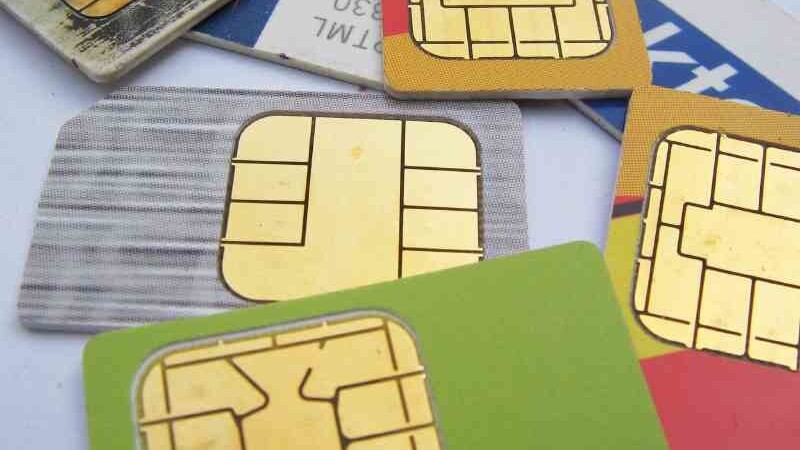
May 26th, 2011, probably won’t strike you as a particularly notable date in history. But that was the day that heralded a fair few changes in the way mobile phone contracts operate in the UK.
As we reported at the time, a number of regulatory changes were brought in on May 26th, as a result of new European telecoms laws which meant shorter phone and broadband tie-in periods. The two notable amendments were that 36-month mobile phone contracts were to be prohibited, and the option of contracts of no longer than 12 months was made mandatory.
The real effects of these changes were minimal though, as 36-month mobile phone contracts weren’t actually all that commonplace anyway. Orange was the first UK mobile phone network to introduce a 36-month option back in June 2009, which pretty much meant it could offer the lowest monthly mobile phone contract prices, with £5, £10 and £15 monthly deals giving customers a free handset when they sign up, plus another one after 18 months.
An Orange spokesperson said:
“We were happy to comply with the legislation that ensured contract lengths do not exceed 24 months and we subsequently removed our 36 month tariffs. Although we appreciate 36 month tariffs weren’t for everyone, they offered an option for people who did not want to go through a top up process, were happy to commit to a contract and wanted the security of knowing they wouldn’t run out of credit – as well as a phone as part of the package at no extra cost, which customers could replace this half way through their contract.”
So for those on a tight budget, the 36-month contracts may not have been all that bad, especially if all they wanted was a functional phone without all the bells and whistles offered by the latest smartphones.
Three years is a long time to commit to one network though – what if, after a month, you hate the customer service, hate the handset and generally hate the network? Moreover, anything can happen in your personal life in 3 years – you may move house to a rural area where coverage on your network is terrible, or you may even get a new job abroad.
But alas, the 3-year deals were stopped and it’s probably safe to say not too many people noticed. Equally, however, you could also be excused for not noticing much changing at the other end of the spectrum either.
As mobile phones have grown in ubiquity over the past decade, networks had started offering better deals for customers willing to sign up for longer periods, which heralded a shift away from the standard 12-month contract. According to Ofcom figures, at the start of 2005, 88% of mobile contracts were for 12 months. But by March 2009, this had fallen to 3%, with 73% of the population on at least an 18-month contract.
Indeed, many mobile networks actually stopped offering 12-month deals that included a handset. So did that mean the new regulations would see 12-month deals return from the brink of oblivion? Well, not really. Section 7.24 of the new regulations simply state:
“…our application of Article 30 is that providers are not required to provide 12 month contracts which include such handsets. Rather, as we say above, 12 month (or less) contracts need to be available as an option for users. We consider that SIM-only contracts – where contracts can be obtained for between 1 to 12 months and which are already widely provided by many operators – would satisfy the requirements of this new provision.”
So, most mobile phone networks already offered 1 and 12-month contracts on SIM-only deals. These regulations were more about formalizing what was mostly already in place, though the banning of 36-month contracts could be viewed as a preventative measure to ensure that more networks didn’t offer such lengthy deals.
12-month deals: The State of play
Of the UK’s top 5 mobile phone networks, which ones offer 12-month deals WITH handsets bundled in?
Everything Everywhere operates under two brands in the UK – Orange and T-Mobile – and thus it’s the top mobile network overall, with 27m subscribers. Orange doesn’t offer 12-month contracts with handsets included (“However, we constantly review our offers to provide the best value and services possible for our customers”). T-Mobile does offer this, however it only has 3 separate plans with four mobile phones available.
With over 22m users, O2 is the third largest network in the UK (if you count Orange/T-Mobile as separate companies), and it doesn’t offer 12-month contracts with handsets bundled.
Vodafone, on the other hand, announced earlier this year that it was reintroducing 12-month contracts. But even better, it would include the latest smartphones. In fact, you can actually get the iPhone 4 on a 12-month Vodafone contract, and it’s not a bad deal either.
Three has over 7m users and, well, it’s all alone in that it only offers 24-month contracts with handsets included. If you don’t want a 24-month contract, then it’ll have to be SIM-only or pay-as-you-go.
The UK actually has almost thirty mobile phone networks, many of which you won’t have heard of and are classed as ‘virtual’ networks, meaning that they piggy-back of the mobile phone masts of the bigger networks. Some of these offer handsets on 12-month deals though, such as Tesco.
SIM-only and the appeal of short-term deals
SIM-only deals have grown in popularity since they were initially introduced in 2007, whereby consumers still have a contract with a network, but they don’t receive a handset bundled into the deal. Users receive many of the benefits of a contract – e.g. a set amount of texts, mobile Internet and calls, but it’s a lot cheaper as they’re not paying for the handset. Plus, they allow users to commit to as little as one month. By 2009, more than a fifth of new mobile contracts were on 1-month rolling contracts.
Indeed, UK mobile phone users have traditionally not enjoyed being on long term contracts. For example, Vodafone has 19m users, 48% of whom are on a pay-as-you-go (PAYG) deal. And as Ofcom reported yesterday, PAYG remains the most popular type of mobile subscription in the UK, with more than half of all consumers adopting a ‘pay per play’ approach with their mobile phones. But the trend is shifting.
Last year, Ofcom reported that PAYG had fallen from 68% in 2005, to 55% in 2010. Contracts (not SIM-only) were up by 10%, so it seems we’re seeing a definite shift towards consumers committing to a mobile phone network for the long term.
Mobile phone contracts: Glorified ‘hire-purchase’ agreements
Mobile phone contracts is a divisive subject. Many people see them as little more than a cynical ploy by networks to get customers’ cash committed for the long haul, with no real benefit for the customer. For others, contracts offer an easy, affordable and convenient way to ensure they have the best handset, with texts and calls on tap.
It’s worth looking at whether mobile phone contracts offer genuine value for money, or if there are alternative solutions that allow customers to tap into the inherent benefits of a contract…without actually being on a contract. What I’m talking about, of course, is buying handsets outright and up front, and arranging a separate SIM-only deal.
In the UK at least, it’s actually not all that easy to just walk into a shop and buy a handset without committing at least some money to a specific mobile phone network. I’ve tried on a number of occasions in recent times to do so, and outlets run by the likes of Orange, Vodafone, Three, O2, Carphone Warehouse and Phones4U typically won’t just sell you a handset without trying to tie you in with a network. Even on pay-as-you-go deals, the phones will likely come locked to a certain network, and may even have a network’s horrible pre-installed branded software. Not ideal.
Also, try going into many of these outlets and declare your desire for a mobile phone without any kind of commitment to a particular network. You’ll often be asked why you don’t want a contract, because “you get a free mobile phone with it”.
That may just be sales talk from staff on commission, but even when signing up to a contract online, you’ll see various tariffs in a table, with one column outlining how much the phone will cost you. For example, the handset may end up costing you £140 up-front on an 18-month contract, but it’ll tell you that it’s ‘free’ on a 24-month contract.
But this is the crux of the problem for many – the phones are NOT free. Some may be slightly subsidized by the network – but only slightly. The cost of the handset is built into the monthly contract cost. The sales and marketing patter cleverly disguise what is little more than a glorified hire-purchase agreement.
Of course, completely SIM-free, non-branded handsets can be bought in dedicated electrical retailers, and they are also widely available online. And as we’ll see here, you really aren’t saving all that much money by signing up to a contract.
Contracts vs. handset only: iPhone 4
The iPhone 4 is probably as good an example as any if we’re to illustrate the different costs between entering into a contract with a mobile phone network and going solo with separate handset/SIM-only deals.
Going solo…Orange
In the UK, a SIM-free iPhone 4 (16GB) can be bought directly from Apple for £510. Every iPhone 4 comes with one year of hardware repair coverage through its limited warranty, plus up to 90 days of complimentary technical support. Assuming you want coverage beyond a year, you can also buy-in to the AppleCare Protection Plan which extends coverage to two years, costing £61. So let’s call the total cost £571.
Now, an iPhone 4 is just a pretty-looking gadget without an active SIM card. So, let’s look at some of the SIM-only deals around.
Orange offers a special SIM-only deal for the iPhone 4, giving 600 minutes, unlimited texts and 500MB of mobile Internet for £25 a month on a 30-day rolling contract. So that would work out at an up-front payment of £571 for the iPhone 4, plus £600 over the course of two years on Orange…so that’s £1,171. The allowance you get on the deal will be plenty for many people, but crucially, you’re not committed to one network, and you can leave at a month’s notice.
Now let’s compare that with a 24-month contract…(Orange)
If you compare that to some of the contracts available on Orange, something doesn’t quite add up. Orange offers a 24-month plan, costing £25 per month PLUS an up-front cost of £509.99, whilst you only get 75 minutes, 125 texts and 250mb mobile Internet allowance. That works out at over £1,100 to be tied into a VERY long contract with not a very big allowance.
You can get the iPhone 4 for ‘free’ on Orange if you pay £45 per month, which will set you back £1,080 over a two-year contract. And for that, you’ll get 1,200 minutes, unlimited texts and 750MB of mobile Internet.
Going solo…Vodafone
Vodafone works out slightly better for the iPhone 4, and it offers 12-month contracts too. So, with an up-front cost of £229 for the handset, plus £612 over the course of the 12-month plan, that’ll set you back £841 for 1,200 minutes, unlimited texts and 750MB of mobile Internet.

Now, if you buy the iPhone 4 outright at £571 (which, remember, also includes the full 2-year care plan), and sign up to the 90-day rolling contract on Vodafone which will cost £420 over 2 years, that’s less than £1,000 you’re spending over the same period of time to have very little contractual obligation in place.
If you were to look at the various 24-month iPhone 4 contracts available on Vodafone, you’ll see they’re broadly the same as Orange. And if you look at other networks, such as Three, you’ll see that you can sign up to a 24-month contract for a total cost of less than £1,000 too. But the point is there’s no flexibility on such a long-term deal.
There’s no such thing as a free phone
What’s to be gleaned from all this? Well, firstly it does pay to shop around. And secondly, it’s pretty clear that there is no such thing as a free mobile phone.
PAYG may still have the lion’s share of the mobile phone market, but this is changing. So why are so many people signing-up for long term mobile phone contracts?
Long contracts don’t necessarily mean you’re saving a great deal of money. If you can afford to buy a mobile phone in its entirety up front, and sign a SIM-only deal, it’s likely you’ll spend roughly the same amount of money as though you’re on a long-term contract – maybe even less. And all without any commitment to one network which, for many, is vital.
If you can’t afford all the up-front costs but don’t want a long contract, you could maybe look to compromise and enter into a 12-month deal (as with Vodafone) and pay about half the full cost of the handset at the start, with the rest built-in to the price plan of the year-long deal.
But here’s the key point. If you really can’t afford the up-front costs of a handset, and aren’t prepared to save up and put the money aside, then contracts are the only option if you want the best phones ‘now’.
People now expect to access the Internet wherever they roam, half the UK is signed up to Facebook, and mobile phones are firmly ingrained within the fabric of society. They’re more than a luxury item, they’re an essential item. But smartphones are expensive so people need an easy, convenient way to attain the best handsets. And the ‘hire-purchase’ approach adopted by the mobile phone networks allows this to happen.
Get the TNW newsletter
Get the most important tech news in your inbox each week.







